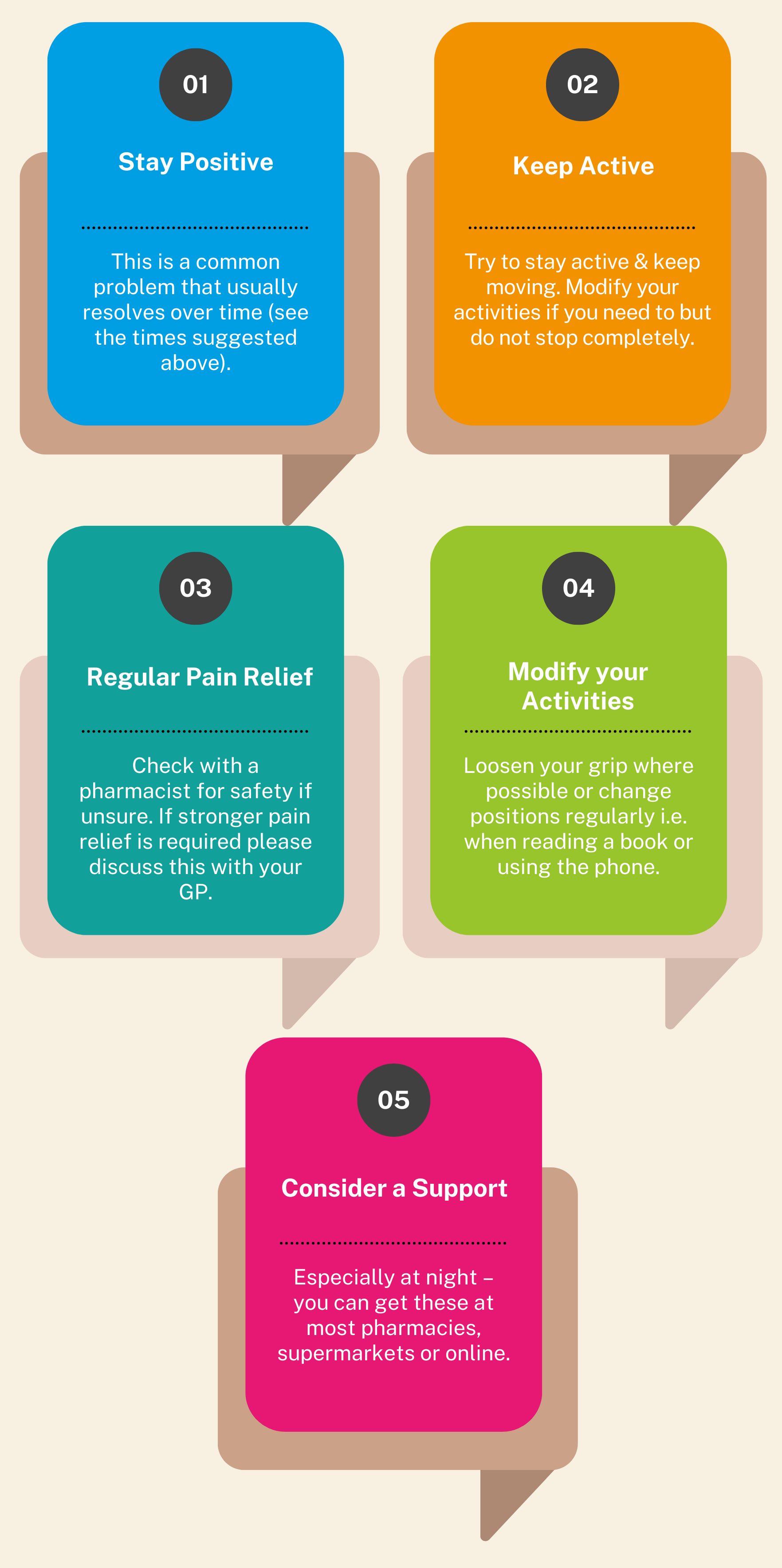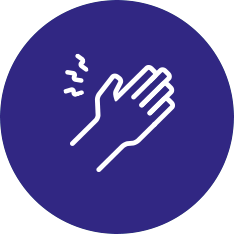Carpal Tunnel Syndrome
What is Carpal Tunnel Syndrome?
Carpal Tunnel Syndrome (CTS) is a common condition that can cause tingling, numbness, aches or pains in the hand and wrist.
The carpal tunnel itself is narrow and formed by the wrist bones and a thick ligament which branches across them.
The symptoms are caused by pressure on the median nerve as it passes through the carpal tunnel. This nerve controls muscles that move your thumb and supplies the sensation to your thumb and first two fingers which is where the symptoms are usually felt.
What are the symptoms?
All symptoms can vary in intensity and may come and go:
- Altered sensation such as tingling or numbness and aches/pains felt in the thumb, index finger, middle finger and the thumb side of the ring finger
- Symptoms are often worse at night and can disturb sleep
- Symptoms may affect one or both hands and may spread up into the wrists and forearm
- You may also experience some reduction in your grip strength and feel a little clumsy when using your hands to do things like fastening up buttons
What are the causes?
The exact cause is not always known, but anything that increases pressure on the nerve can lead to symptoms, such as;
- Repetitive hand or wrist actions such as gardening, assembly line work or forceful gripping actions
- Obesity
- Peri-menopausal women. It is three times more likely in women than men
- Hormonal changes such as during pregnancy
- Osteoarthritis & Rheumatoid arthritis effecting the wrist and hand
- Vibration - such as from operating machinery
- Diabetes
- Thyroid issues
- Direct injury to the wrist such as a fall
- Excessive alcohol consumption
For more information to help support your general health and well-being, please click here to access our "Healthy You" page. This includes information on exercise, mental health, smoking and weight management.
How long will it last?
Everyone's pain is different and full recovery can depend on multiple factors, but most people will make a full recovery. Most people will see some improvement following 6-12 weeks of lifestyle changes, advice, and an exercise program. Nerve healing can be a slow process and can take up to 18-24 months to fully resolve in some cases.
What can I do to help myself?

Do I need an x-ray or a scan?
In most cases, no. A good history and physical examination of your hand alone provides enough information to diagnose your problem. Scans and x-rays are not always useful for diagnosing carpal tunnel syndrome. While a scan or x-ray may provide information it rarely alters the treatment plan.
Imaging findings are very poorly linked with pain and often people with no pain have very similar findings on their scans/x-rays to those that do. X-rays and scans can help for a small number of people in certain situations and will be recommended by a healthcare professional if required.
What about a steroid injection?
A steroid injection may be considered to help control the pain in some circumstances. The risks and benefits would be discussed with your Physiotherapist or GP and is not always an appropriate option for all patients.
Symptoms to check
Click the plus sign to see a list of problems that could be a sign you may need to be checked urgently
Get advice from 111 now if:
- the pain is severe and started after an injury or accident, like a fall
- if you have cut yourself and can no longer move your fingers or wrist normally
- you heard a snap, grinding or popping noise at the time of an injury
- you are unable to move or hold things
- your hand or wrist has changed shape or colour
- you have a very high temperature, feel hot and shivery, and have redness or heat around the hand, wrist or fingers – this can be a sign of infection
- you have any severe tingling or loss of sensation in your hand and it wont go away
Immediate medical advice is available by contacting NHS 111


 Wrist & Hand
Wrist & Hand